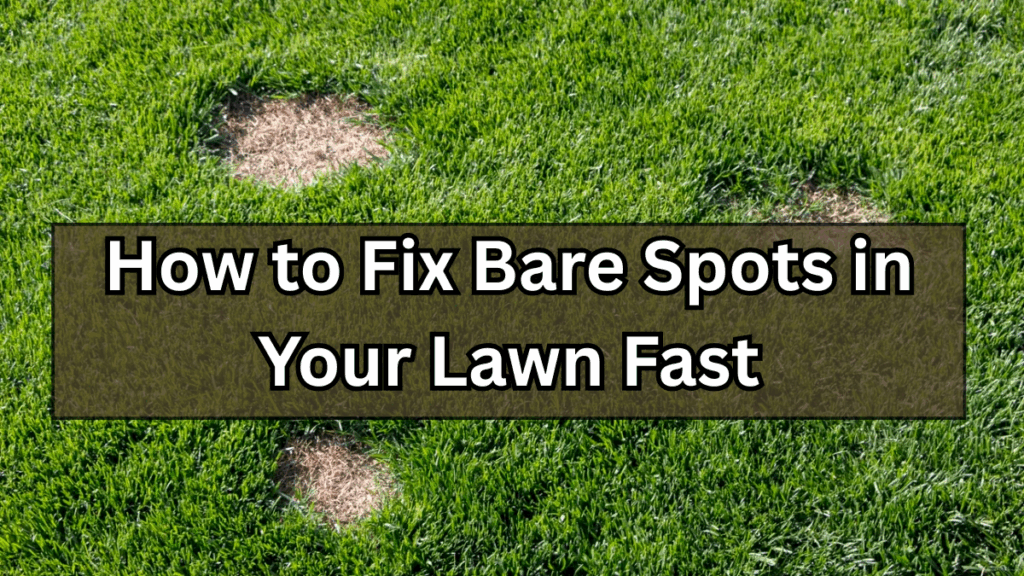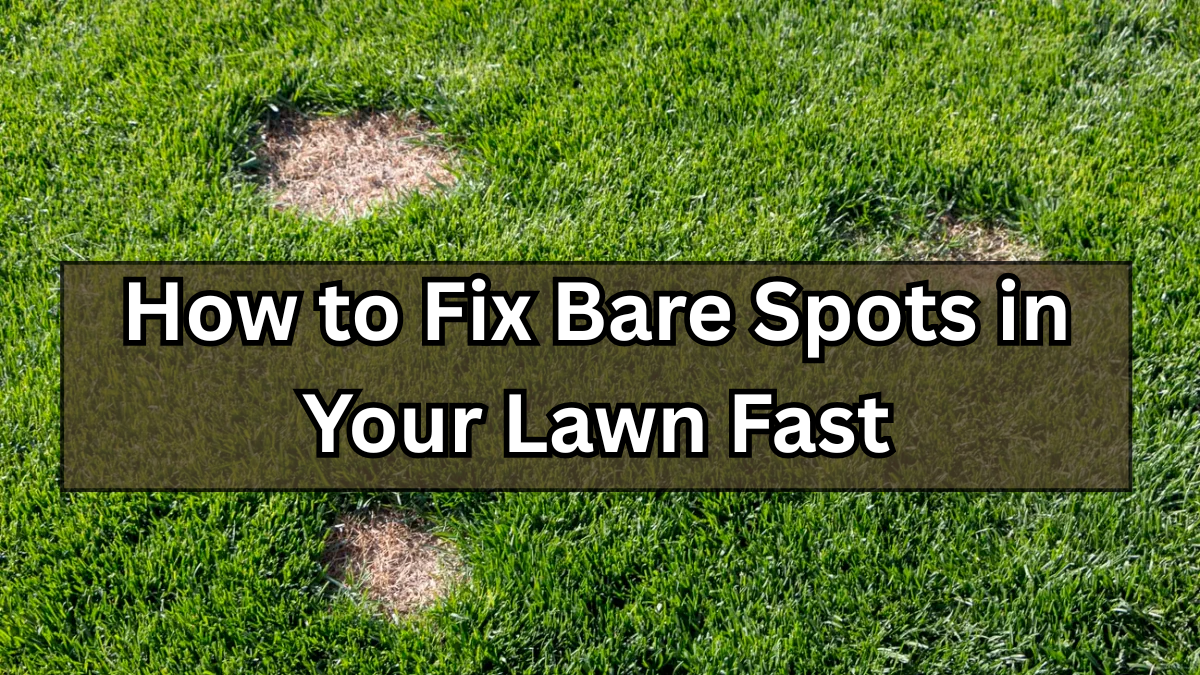Every homeowner dreams of a lush, green yard—but bare patches can easily ruin that picture-perfect lawn. Whether caused by heavy foot traffic, pests, pets, or harsh weather, those stubborn bald spots need quick attention. The good news? You don’t need expensive sod to fix bare spots in lawn areas. With the right lawn repair techniques and a little patience, you can bring your yard back to life.
Let’s walk you through practical grass patch fix methods that work fast and effectively.

Why Bare Spots Appear in Lawns
Before jumping into solutions, it’s important to understand what causes those unsightly patches. Some common culprits include:
-
Heavy foot traffic or play areas
-
Dog urine or pet damage
-
Lack of sunlight
-
Soil compaction
-
Pest or disease damage
-
Seasonal stress (heat, drought, or cold)
Knowing the cause helps you pick the right lawn repair approach for long-term success.
Step-by-Step Guide: Fix Bare Spots in Lawn Without Sod
Step 1: Prepare the Area
-
Rake away dead grass, leaves, or debris
-
Loosen the soil using a garden rake or tiller
-
Mix in compost for better soil health
Step 2: Seed the Patch
-
Choose grass seed that matches your existing lawn type
-
Evenly spread seeds over the bare spot
-
For a smoother look, use a handheld spreader for even coverage
Step 3: Top It Off
-
Lightly cover seeds with topsoil or compost
-
Avoid burying them too deep—just a thin layer will do
Step 4: Water Regularly
-
Keep soil consistently moist until seeds germinate
-
Water lightly 1–2 times a day at first, then reduce frequency as grass establishes
Step 5: Maintain and Protect
-
Avoid walking on the patch until the new grass grows strong
-
Apply fertilizer after 3–4 weeks to boost growth
Overseeding Tips for Stronger Growth
If your entire lawn looks thin (not just a few spots), overseeding tips can help thicken it up:
-
Choose a high-quality seed blend suited to your region
-
Mow the lawn short before overseeding
-
Spread seeds evenly across the entire yard
-
Keep soil moist for 2–3 weeks until new grass fills in
Quick Comparison: Patch Repair vs. Overseeding
| Method | Best For | Time to See Results | Effort Level |
|---|---|---|---|
| Grass Patch Fix | Small bare spots caused by damage | 7–21 days | Low |
| Overseeding | Thin lawns or widespread bare patches | 3–6 weeks | Moderate |
Extra Lawn Repair Tips
-
Aerate compacted soil to improve air and water flow
-
Apply mulch around patches if pets keep disturbing them
-
Use starter fertilizer for stronger root development
-
Plant during early spring or fall for best results
FAQs
1. How long does it take to fix bare spots in lawn?
Typically, new grass sprouts within 1–3 weeks, but full coverage may take up to 2 months depending on grass type and weather.
2. Can I just throw grass seed on bare spots?
You can, but it’s not ideal. Preparing the soil first ensures seeds germinate properly and prevents uneven growth.
3. What’s the best time to fix bare spots in lawn?
Early spring or fall is best because of mild temperatures and more consistent rainfall.
4. Should I fertilize after lawn repair?
Yes, but wait at least 3 weeks after seeding to apply a starter fertilizer. Too much fertilizer early on can burn young seedlings.
Click here to learn more
